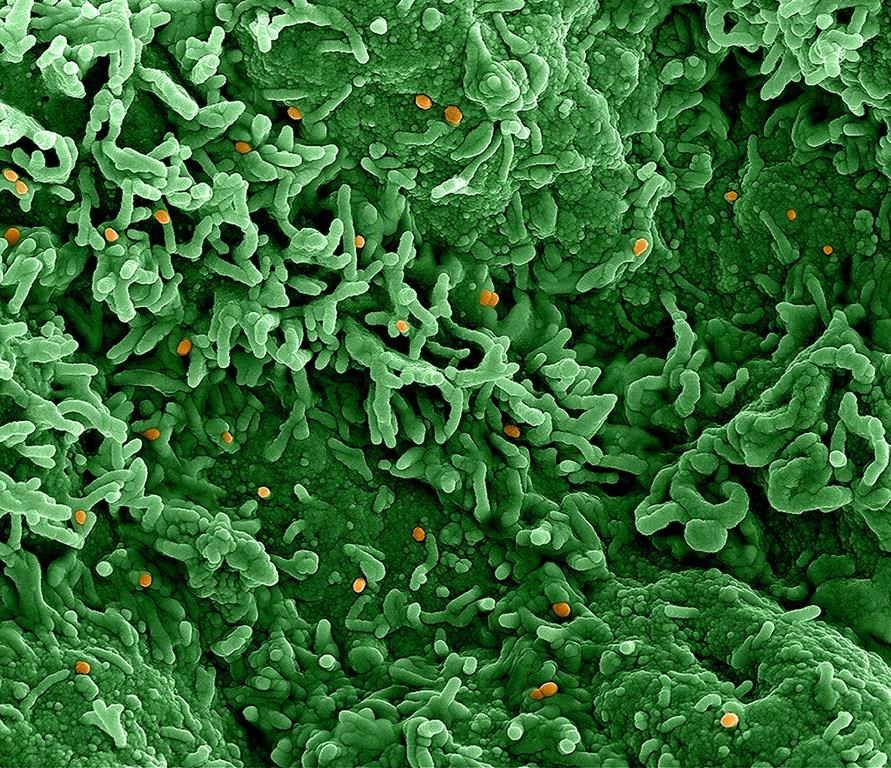Canadian universities and colleges should be proactive to prevent monkeypox from spreading among students, say experts, warning that a lack of education could give the virus a chance to gain a foothold on campus.
Schools should be raising awareness about the risks of monkeypox as students prepare to come together to kick off a new semester with jam-packed festivities where the virus is liable to spread, said University of Manitoba virologist Jason Kindrachuk.
"We're moving into a time of year where there are going to be kids, particularly those that are at an age that are more sexually active ... undertaking different social events that may put them in situations where there's an elevated risk," said Kindrachuk, an assistant professor in medical microbiology and infectious diseases.
So far, monkeypox cases in Canada have been concentrated among men who reported intimate sexual contact with other men, Kindrachuk noted, but the risk of infection is not limited to any group or setting.
The virus spreads through close, often skin-to-skin, contact with an infected person's lesions, their clothing or bedsheets. Symptoms can include rash, swollen lymph nodes and fever, and typically last two to four weeks.
While a handful of U.S. universities have reported monkeypox infections, there are no signs to suggest the virus is currently circulating on Canadian campuses.
But Kindrachuk said it's possible that could change as back-to-school season of crowded social events, cramped dorm rooms and high rates of sexual activity invites more opportunities for potential exposure.
"This is a virus that ... will take advantage of any cracks that are available to it, so if it's able to move into other populations, it will," he said. "We're in a position where we want to try to keep a hold of this as best as we can and as quickly as we can."
Universities in the two provinces where most of Canada's monkeypox cases have been detected said they're working with health authorities to manage the risks of the disease.
In Ontario, University of Toronto said no cases of monkeypox have been reported on its campus. The school has posted an online guide on how to access services that help with testing, isolation protocols, contact tracing and school or work accommodations.
Toronto Metropolitan University said it's developing protocols to deal with potential infections on campus, particularly in residences.
In London, Western University said it plans to soon launch an awareness campaign, including a dedicated webpage.
Meanwhile, in Quebec, the health authority representing south-central Montreal said it has "no proof" of maintained monkeypox transmission in post-secondary settings, but noted that there's been less traffic on campus since the virus started to spread in Canada in late spring.
The authority has been working with schools and health services to share the latest information about monkeypox, spokesman Jean Nicolas Aubé said in an email Thursday.
Students who meet Quebec's criteria for vaccination are encouraged to get their shots as soon as possible, he said. There are no plans to set up on-campus vaccine clinics, but that could change if outbreaks are reported in the coming weeks.
Concordia University said it's looking to reconvene a group that addresses concerns about infectious diseases, including monkeypox, with a focus on campus housing.
McGill University said its student wellness centre offers information and resources about a range of health-related concerns, including monkeypox.
Devan Nambiar of the Gay Men's Sexual Health Alliance in Toronto said it's incumbent on schools to provide clear, non-stigmatizing information about monkeypox as part of student orientation.
With the first day of classes fast approaching, Nambiar urged administrations to put protocols in place before students descend on campus rather than risk giving the virus a head start on the school year.
"When there's misinformation and confusion, that is not really good for anyone's mental, emotional or physical health," said Nambiar.
"The sooner they have these discussions in-house on all the university and college campuses, the better it is for everyone ... to focus on studies and enjoy campus life."
The COVID-19 crisis could act as a template for contagion control on campus, said Nambiar.
But a student sexual health advocate said the piecemeal post-secondary response to COVID-19 should also be a lesson in how muddled messaging can sow confusion and unease.
"We traditionally looked at the universities for a lot of guidance when it came to COVID," said Felicia Gisondi, executive director of Sex and Self, a non-profit that promotes sexual education for young Canadians. "Unfortunately, there wasn't a great consensus."
Gisondi is concerned that a void of science-backed, accessible information about monkeypox could stoke unfounded anxiety about going to classes for some, even though evidence suggests the virus doesn't spread through casual contact.
"If the university doesn't act swiftly, there will be a lot more fear associated with monkeypox, on top of the fears that a lot of students have about returning to a post-COVID campus."
Monkeypox, which comes from the same family of viruses that cause smallpox, has been endemic in parts of central and west Africa for decades and was not known to trigger large outbreaks beyond the continent until May.
On Wednesday, federal officials reported there were 1,206 confirmed monkeypox cases in Canada, including 583 in Ontario and 471 in Quebec.
This report by The Canadian Press was first published Aug. 25, 2022.
Adina Bresge, The Canadian Press




